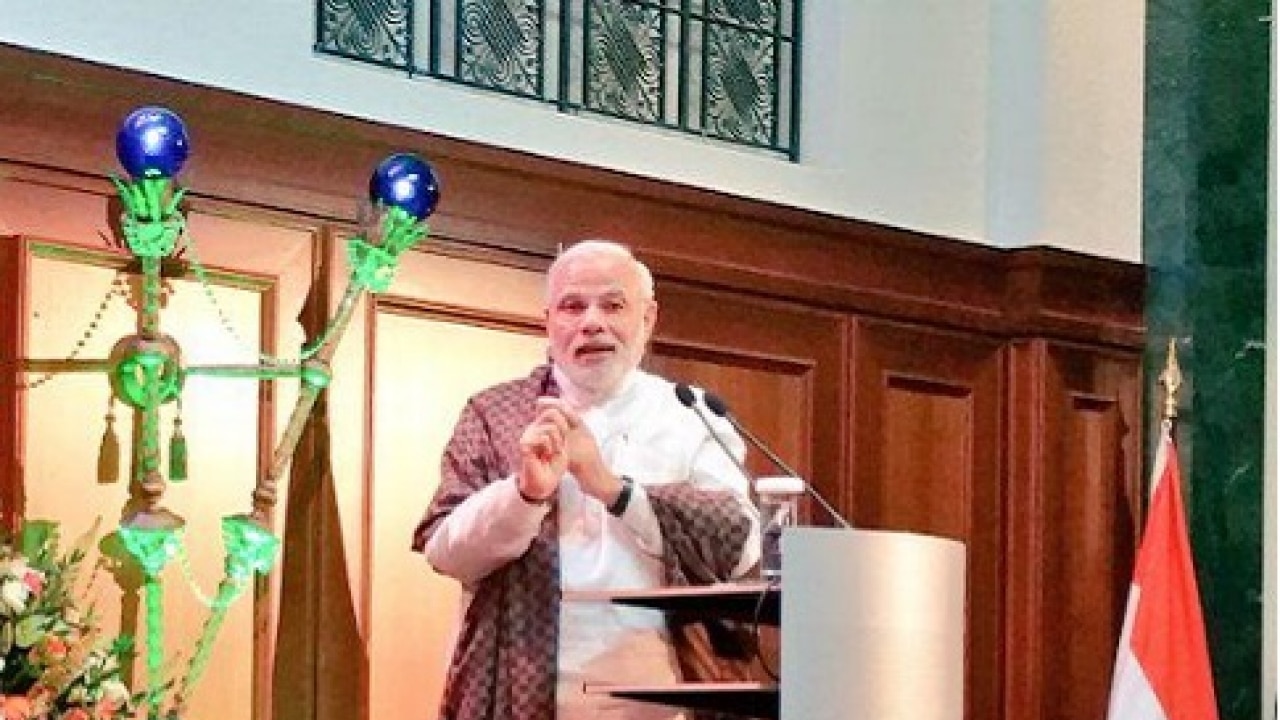
China is pulling out all the stops for Prime Minister Narendra Modi’s visit to the Middle Kingdom, scheduled for the third week of May. This was all too evident in meetings where experts, think tanks, diplomats and foreign ministry officials in Beijing briefed Indian journalists on prevalent expectations in the run up to the Indian Prime Minister’s upcoming trip.
Almost all those who met the Indian journalists described Modi as a “strong leader” who could take India-China relations to a higher level by increasing political trust and opening the way to resolve the tricky boundary dispute.
"I hope the two strongmen (Modi and President Xi Jinping) can solve the boundary issue," said Yang Wenchang, President of the Chinese People's Institute of Foreign Affairs, a leading think-tank. Yang said that with “strong men” leading both India and China, he was hopeful of Modi and Xi moving towards a deal. "A strongman can take strong decisions," he said of Modi and stressed that "China is ready for a new border".
The unabashed optimism suggests that China is prepared to go all the way to win acceptability in India. And, as if to goad Modi, Yang recalled that in 1988, on a visit to China, Prime Minister Rajiv Gandhi had failed to seize the opportunity provided by “Paramount Leader” Deng Xiaoping to settle the border dispute. At his meeting with Rajiv, according to Yang, Deng is said to have proposed renaming of the McMahon Line as the China-India line.
The subtext appears to be that like his grandfather, Jawaharlal Nehru — who was accused of being “stubborn and arrogant” when he rebuffed Zhou En-lai’s proposal for a settlement on the basis of status quo in April 1960 — Rajiv, too, failed to grasp the nettle. And, that now Modi has the chance to make history.
Yang is a seasoned diplomat. The perception that his emphasis on the issue reflects the official position is reinforced by Huang Xilian, the foreign ministry’s Deputy Director-General for Asian Affairs, praising Modi’s “strong leadership”. Huang, a trusted India hand, was explicit that “So long as the two leaders showed strong political will, prospects for settling the border issue are good".
Another expert rooting for Modi and confident of progress on the border issue is Hu Shisheng of the China Institutes of Contemporary International Relations. He hoped that Modi would get another term as Prime Minister so that the “two strong leaders” can find a way to put the border problem behind us.
Clearly, China wants to impress that an economic, political and diplomatic partnership with India is important to its peaceful rise as a global power. And, political trust, as Hu said, is important for China’s greater acceptability in India. A political and diplomatic comfort level catalysed by a breakthrough on the border issue could help China step out of its present economic cycle — which is slowing down growth and letting India race ahead with a higher GDP — towards a partnership for the larger agenda of transforming the region and Asia for the much-vaunted “Asian Century”. This would also mean addressing India’s concerns on the Silk Road Economic Belt (SREB), and the Maritime Silk Route (MSR)
In short, for the first time since 2008, encouraged by thriving economic ties, Beijing wants to settle the basis, ie, the boundary issue, for stabilising relations with India, keeping in mind its own peaceful rise to supremacy in Asia.
The author, an independent political and foreign affairs commentator, was invited to China by its Ministry of Foreign Affairs for briefings ahead of PM Modi’s visit next month